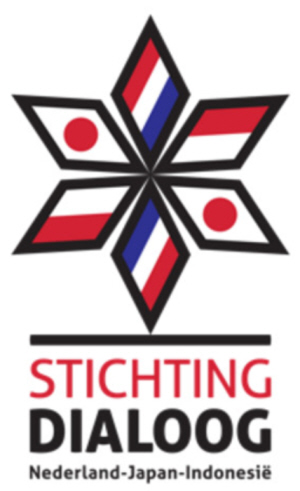Symposium criticized because it only pays attention to the perspective of the colonial occupiers of Indonesia

Today Francisca Pattipilohy and Jeffry Pondaag sent an open letter to the Dialoog Nederland-Japan-Indonesië (NJI) foundation, in response to a symposium organized by NJI that will take place on October 6 in The Hague. The letter is supported by others, including Doorbraak. According to Pattipilohy and Pondaag the NJI thinks exclusively from the perspective of the former occupiers of Indonesia (the Netherlands and Japan) and “ignores the Indonesian experience as oppressed”, as they say in a press release of the Comité Nederlandse Ereschulden foundation, of which Pondaag is chairman. Earlier Pattipilohy and Pondaag, together with more than a hundred others, also criticized the research project “Decolonization, violence and war in Indonesia, 1945-1950”. You can read the open letter below.
| Nederlands |
With this letter we want to respond to your invitation for the symposium “Trauma, recognition and reconciliation after violent conflict.” After viewing the program we conclude that your approach exclusively highlights the Dutch-Japanese perspective. The Indonesian perspective is missing. Further, you don’t distinguish the difference between occupying power(s) versus the millions of oppressed. We will explain why the latter is of crucial importance to us.
The announced lecture “Violence in context 1942-1949” by dr. Henk Schulte Nordholt, only applies to the Netherlands and Japan. The period of the Japanese occupation (1942-1945) was a violent, oppressive occupation for millions of Indonesians as well. However, your foundation seems to approach the Japanese occupation exclusively from a Dutch perspective: as if not Indonesia but the Netherlands was victimized by Japan. Why don’t you invite someone like dr. Ethan Mark? He is an expert regarding the Japanese and Indonesian perspective on the Japanese occupation of Indonesia. He obtained his PhD at Columbia University in New York. On Thursday October 4th his book “Japanese occupation of Java in the Second World War” will be presented in Leiden. For this publication he conducted years of research, focusing on the Japanese occupation of Indonesia from a Japanese and Indonesian perspective. The latter perspective is exactly missing in the program of the symposium.
Why does the program not pay attention to the three and a half century of violent oppression that preceded 1942? For Indonesians the complete period of foreign domination is important when it comes to reconciliation. This means that if you want to represent Indonesia, you cannot solely pay attention to the Japanese occupation which was followed again by three and a half years of Dutch terror.
The Indonesian population of 70 million was illegally colonized by the Netherlands and Japan in the form of oppression, exploitation, slavery, forced labour, prostitution, humiliation, racist discrimination and above all centuries of divide and rule politics. Feudal lords were deliberately set up against their own people, the same counts for the numerous ethnic groups (more than 170) who hated and mistrusted each other due to the colonial policy. The colonial army, the KNIL, was founded by Europeans and led by Indo-Europeans. Yet the ordinary soldiers were predominantly “inlanders” (the humiliating term that the Dutch colonizers used to refer to our ancestors). The “native” soldiers of the KNIL were deployed to punish and murder their own brothers and sisters. They were used to protect the interests of the colonial rulers so that they could continue enriching themselves.
The topic “Captive fathers, captive children” also exclusively refers to the period 1942-1949. Yet the point is that the Indonesian “men, women and children” lived in “captivity” for centuries. Our fathers, mothers, children, grandparents already lived in captivity since the VOC regime until the Indonesian freedom struggle of 1945-1949.
For all these reasons, we are wondering which Indonesians were involved in the establishment of the NJI foundation. And in what way? As long as the unequal power balance is not explained, every attempt for reconciliation is useless. Japan and the Netherlands were both occupiers, the Indonesians were victims of those occupations. It is impossible to equalize this relationship.
Another important point is the enormous language barrier and the lagging behind in development. The fact that the entire symposium is in English makes Indonesia an unequal participant in the Dialogue NJI. Remember that for more than three centuries the majority of the Indonesian people were deprived of education. It is impossible to catch up this lagging behind in only seventy years of Merdeka. When organizing a dialogue and symposium it is therefore important to take into account the language barrier and lagging behind in development.
The enormous wealth of Indonesian minerals and natural products has made the Netherlands one of the richest countries in the world. The occupation also benefited Japan. It is not a coincidence that both the Netherlands and Japan are technically and mentally highly developed. It is not without reason that they are still part of the richest countries in the world. Indonesia only became an independent republic in 1945. Only after that we could start writing our own history. A history that the Dutch and Japanese population is not aware of due to the lack of information in the history books at schools.
In short, it is not clear to us how your foundation represents Indonesia. As far as we are concerned, the “I” in your name should be removed.
Francisca Pattipilohy
Jeffry Pondaag
